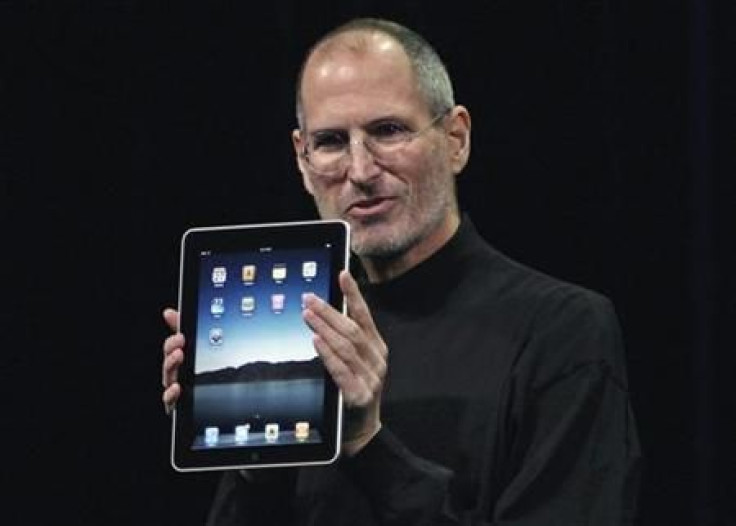Steve Jobs: After A Year, What Are Apple’s Prospects?

Friday marks a year since the death of Steve Jobs, 56, Chairman of Apple (Nasdaq: AAPL), the company he co-founded in 1976. Since then, it’s become the world’s most valuable company, with a capitalization of $625 billion.
Shares of the Cupertino, Calif., electronics concern, whose headquarters building is on Infinite Loop, closed at $666.80 on Thursday, or 79 percent higher than a year ago.
In that time, Apple has made a transition to new CEO Timothy D. Cook, 51. Its top management cadre remains all-male. Its only new director is Robert Iger, CEO of Walt Disney Co. (NYSE: DIS), whose biggest shareholder is the Jobs estate, with a 7.7 percent stake, valued around $7.3 billion.
Laurene Powell Jobs, 49, the chairman’s widow, controls about 5.5 million shares of Apple, valued around $3.67 billion, as well as the Disney stake. Until now, Jobs has been silent about any plans for a foundation or charity, although there have been rumors that her husband gave away millions to hospitals or to cancer research.
Steve Jobs died of pancreatic cancer.
Over the past year, Apple has not deviated from its course: new products such as the iPad, iPhone 5 and new iPods have been successes. As well, in a year of no growth for PCs, U.S. sales of Macs rose 4.2 percent in the second quarter, estimates Gartner (NYSE: IT).
Apple’s cash pile swelled above $117 billion in the quarter ended June 30, when it reinstituted a dividend, now $2.65 a share, along with a $45 billion share buyback through 2015.
The company has also gotten into hot water, especially regarding the dispute about outsourcing. Apple once had its own factories, then shifted to U.S. contract manufacturers such as Sanmina-SCI Corp. (Nasdaq: SANM). But now, all production is in Asia, mainly through units of Taiwan’s Hon Hai Precision Industries (Taipei: 2398).
Labor groups protested working conditions at Hon Hai’s Foxconn plants, which Cook visited in March after announcing a probe by the industry-backed Fair Labor Association. Last week, there was a riot at one of the plants.
Now, some iPhone 5 buyers have complained about imperfections in the unit’s aluminum surface. Could they be the result of speed-ups or lack of inspection? When the iPhone 4 came out, Jobs returned from a Hawaii vacation after complaints the antenna didn’t work properly.
On Oct. 15, analysts expect Apple to report fourth-quarter net income to jump about 27 percent to $8.39 billion, or $8.88 a share, as revenue rises 28 percent to $36.3 billion, which could bring full-year revenue to $156.7 billion -- well ahead of what’s expected from Hewlett-Packard Co. (NYSE: HPQ), the world’s top computer company, when it closes its fiscal year on Oct. 31.
So what can go wrong?
Plenty. The links between Apple and Disney are instructive. They date from when Disney acquired Pixar from Jobs and elected him a director. Subsequently, Apple became a huge content distributor, starting with music, but now including books, movies, magazines and TV.
After Walt Disney died in 1976, the company foundered. Only under inspired leadership by Michael Eisner did it start to recover. There was also pressure from Walt’s nephew, Roy Disney, a major shareholder, to shake things up. That was the era when Jeffrey Katzenberg revived the fortunes of the animation department.
Disney now is a consistent performer and purveyor of entertainment. With a market value of approximately $94 billion, its shares have risen 40 percent since Jobs died, not a bad return.
How about HP? Now, with its fourth outsider, Margaret (Meg) Whitman in charge, the 74-year-old company needs to be extensively rebuilt, she said Wednesday. The job won’t be done for another four years, she said, noting that the company she started to run a year ago had too many brands of printers, hardly any customer-resource management software and hadn’t prepared for the cloud.
The business classic, “In Search of Excellence,” published in 1982, celebrated HP “management by walking around” and other virtues. What happened in Palo Alto -- especially at a company where a 12-year-old Jobs once called up co-founder Bill Hewlett and asked for parts to build a frequency counter?
There’s the lesson: both Disney and HP lost their knack after the founders left. Cook and his team ought to be on guard lest the ghost of Jobs come back to haunt them.
© Copyright IBTimes 2024. All rights reserved.












